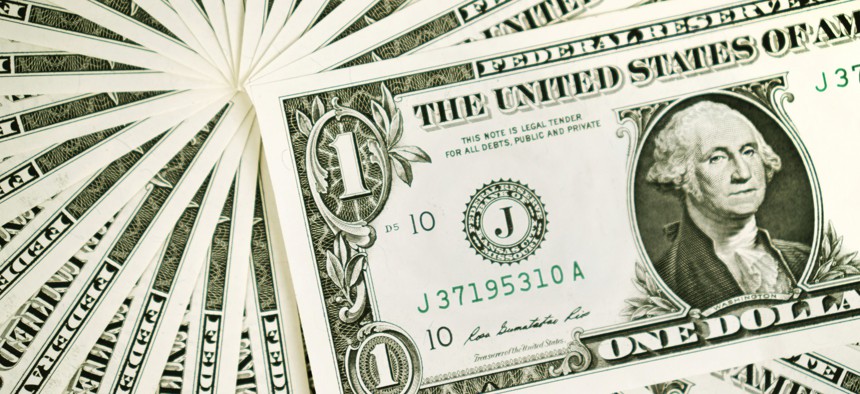
Pictures of Money, via Flickr
White House Confirms It Will Propose 1.9 Percent Pay Raise for Feds Next Year
Increase would be slightly smaller than the 2017 raise.
Civilian federal employees would receive an across-the-board 1.9 percent pay raise next year under President Trump’s forthcoming proposal, Office of Management and Budget Director Mick Mulvaney confirmed Tuesday.
The increase would be slightly less than the 2.1 percent raise feds received in 2017, though it would eclipse the 1.6 percent pay bump President Obama initially proposed for this year. Obama increased his suggested raise to 2.1 percent to bring parity to the adjustment Congress mandated for uniformed military personnel. Congress can still interfere with Trump’s proposal -- which he will formalize in May when he releases a more detailed version of his fiscal 2018 budget -- but generally lawmakers have allowed the president’s suggestion to stand.
Mulvaney confirmed the raise, which was first reported by The Washington Post, when briefing reporters on plans to reorganize federal agencies and explaining why federal employees should not fear forthcoming budget and workforce cuts. “If you’re a really good federal worker,” Mulvaney said, “you should be excited by this. You will finally have the chance to be rewarded.” Mulvaney said Trump, by virtue of the raise, was trying to send the message he is “taking care of the people who are doing a good job.”
Mulvaney did not specify what portion of the increase would go toward base pay and what would go toward locality adjustments.
There are still certain formalities Trump must complete before the raise would become official.
If the president fails to inform Congress of an alternative pay plan for feds by Aug. 31 each year, then the increase mandated by the 1990 Federal Employees Pay Comparability Act kicks in. Under FEPCA, the raise is determined by the change in the Employment Cost Index minus 0.5 percent. For 2017, that would have been around 2.1 percent.
Presidents, however, largely have ignored the FEPCA formula in their pay raise proposals and offered their own figure, as is allowed under the law. Congress created FEPCA, which provides an annual across-the-board salary boost and a locality pay adjustment for General Schedule employees, to close the public and private sector pay gap. If Congress does not intervene, the raise would go into effect in January 2018.
Aside from the 2017 raise, which Obama only proposed after Congress acted on the military side, the 1.9 percent increase would be the largest pay bump since 2010 -- when Obama proposed and feds received a 2 percent raise.
Photo: Pictures of Money, via Flickr







